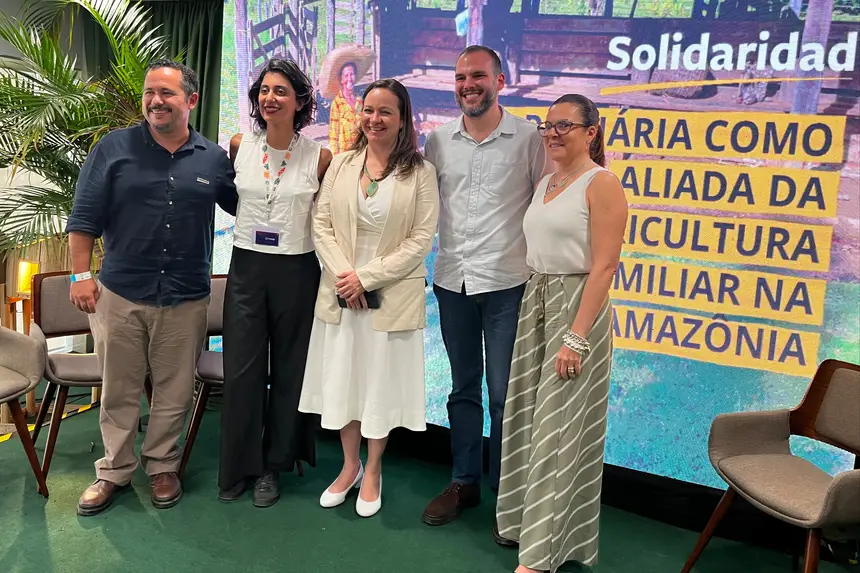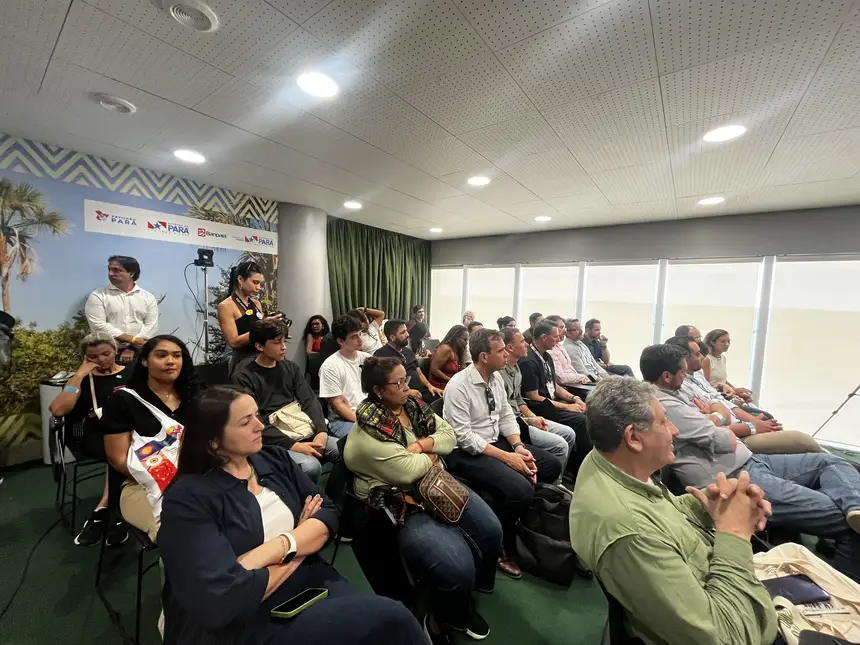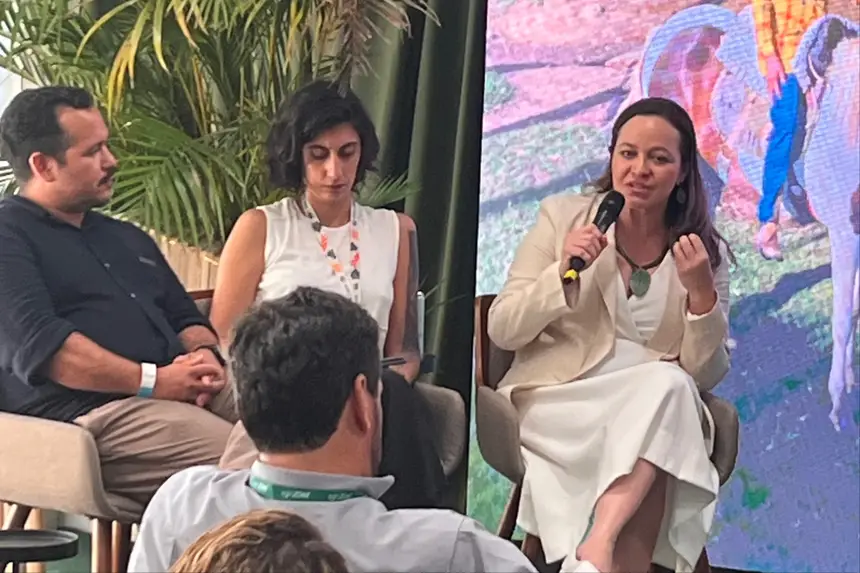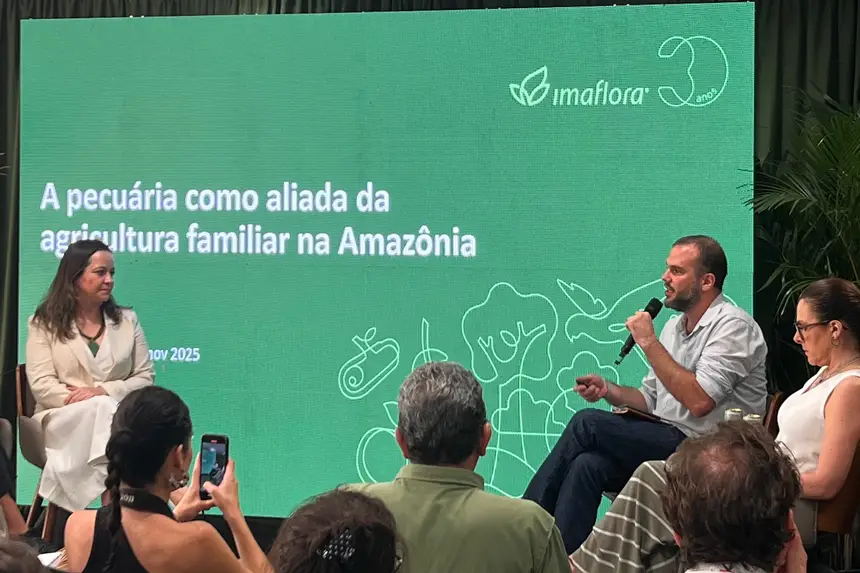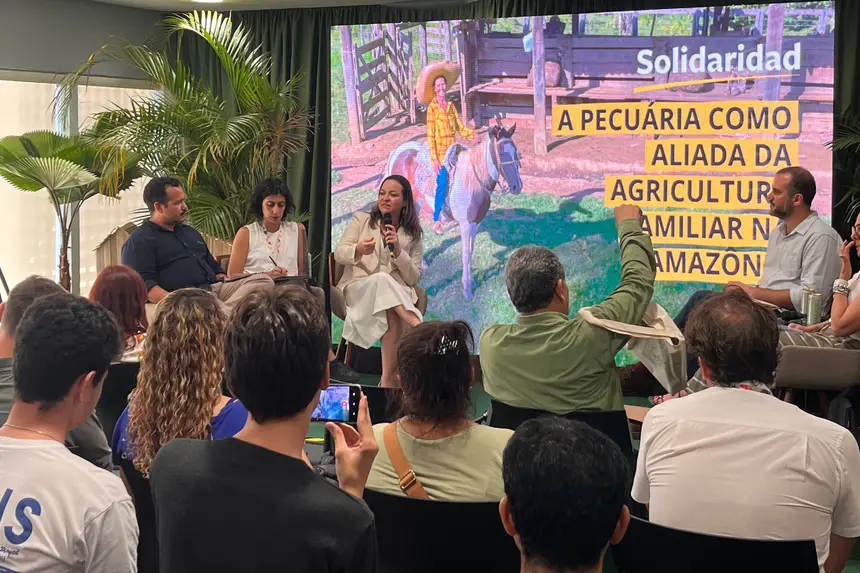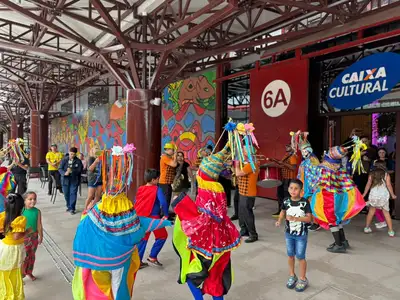Panel discusses sustainable livestock farming in family-based agriculture in the Amazon
Panel addressed the pioneering public policy that promotes animal traceability
The Agricultural Defense Agency of the State of Pará (Adepará) and partner institutions presented, this Tuesday, at the Pará Pavilion, during the UN Conference on Climate Change, the advances of the Sustainable Livestock Program, an initiative that integrates agricultural development and environmental responsibility.
In the panel "Livestock as an ally of family farming in the Amazon", representatives from Adepará, Imaflora, Fundação Solidariedade, and the Brazilian Sustainable Livestock Forum discussed strategies to expand public policy through technical assistance to small producers, promoting sustainable practices on rural properties with cattle and buffalo farming.
Inclusion of family farmers
In the Transamazon region, the program already reaches 800 families, of which 76% have livestock farming as their main source of income. For the involved institutions, strengthening these producers is essential to consolidate livestock farming compatible with the global climate agenda.
"Family-based livestock farming is essential for Pará"
The agricultural and veterinary inspector Barbra Lopes, coordinator of Traceability and Agricultural Registration at Adepará, highlighted the strategic role of family farming in the sector.
"The promotion of the meat chain in Pará goes through family farming. They are the foundation. It is very important that the government, through the Agricultural Defense Agency, brings this policy to regions where small producers raise cattle and buffalo," she stated.
Experiences in the Amazon
Representatives from Adepará and Imaflora cited the experience of the Tuerê Settlement, considered a reference case due to technical assistance and the environmental regularization process.
The Tuerê participates in a multisectoral articulation involving public agencies, civil society organizations, and private companies — including JBS, TNC, Imaflora, and Fundação Solidariedade — to assist producers in adhering to the commercial requalification process and returning to the formal market.
Traceability and regularization
The Public Policy Coordinator at Imaflora, Bruno Velho, emphasized the progress of the "Boi na Linha" Protocol, which strengthens the monitoring and traceability of direct and indirect suppliers.
"Commercial requalification has been an essential tool for reinserting these producers into the market."
Multisectoral articulation
For Paulo Lima, Program Manager at Fundação Solidariedade, the traceability policy has been fundamental for integrating family farmers into the formal market.
"Promoting traceability in family-based livestock farming is a challenge. The case of the Tuerê settlement shows how the union between public power, civil society, and the private sector creates conditions for families to understand the importance of traceability and perceive its benefits. This multisectoral articulation is promising because each actor contributes with their expertise. There is still much to advance to make the policy more attractive to small livestock farmers, but the experience in Tuerê indicates a consistent path," he assessed.
The focus on the producer
For Barbra Lopes, more than technology and protocols, the program should keep its focus on people.
"It is necessary to look at the program understanding the human being who produces food in the Amazon," she stated.


